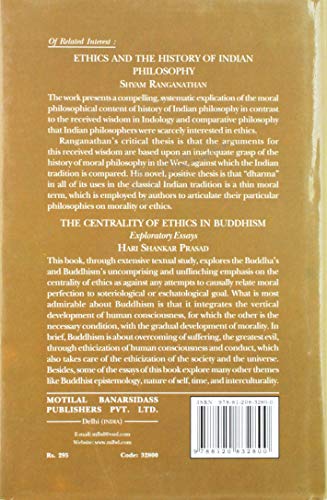Ethics in Early Buddhism
Ethics in Early Buddhism is backordered and will ship as soon as it is back in stock.
Couldn't load pickup availability
Genuine Products Guarantee
Genuine Products Guarantee
We guarantee 100% genuine products, and if proven otherwise, we will compensate you with 10 times the product's cost.
Delivery and Shipping
Delivery and Shipping
Products are generally ready for dispatch within 1 day and typically reach you in 3 to 5 days.
Author: David J. Kalupahana
Brand: Motilal Banarsidass Publications
Binding: hardcover
Number Of Pages: 180
Release Date: 01-12-2008
Details: Throughout the centuries, moral philosophers, both Eastern and Western, considered a permanent and eternal law a necessary requirement for the formulation of a moral principle. If such a law was not empirically given, it had to be determined through reason. In contrast, early Buddhism presented a radical theory of impermanence. Interpreters of early Buddhism have been unable to abandon the presupposition of permanence, however and hence have persisted in viewing nirvana or freedom as a permanent and eternal state to be contrasted with the impermanent world of sensory experience and bondage. Ethics in Early Buddhism is David J. Kalupahana's balanced and brilliantly concise attempt to place the early Buddhist descriptions of the world of experience, the state of freedom and the moral principle leading to such freedom within the framework of impermanence. Kalupahana begins by outlining the Indian philosophical background, particularly its deontological ethics and utilitarian traditions and proceeds to analyze the presuppositions of these moral theories. A comprehensive description of the moral teachings of early Buddhism follows. Kalupahana goes on to demonstrate the application of the moral principle in the explanation of society, economics, politics, law and justice and nature. The conclusion highlights the two most important metaphors used in early Buddhist discourse: the stream (of freedom).
EAN: 9788120832800
Package Dimensions: 8.7 x 5.8 x 0.6 inches
Languages: English







